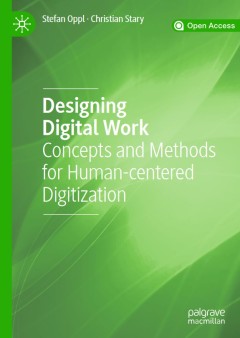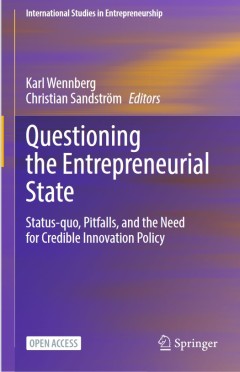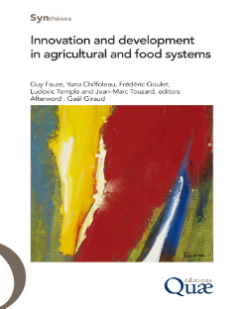Ditapis dengan

Designing Digital Work: Concepts and Methods for Human-centered Digitization
Combining theory, methodology and tools, this open access book illustrates how to guide innovation in today’s digitized business environment. Highlighting the importance of human knowledge and experience in implementing business processes, the authors take a conceptual perspective to explore the challenges and issues currently facing organizations. Subsequent chapters put these concepts into …
- Edisi
- -
- ISBN/ISSN
- 978-3-030-12259-1
- Deskripsi Fisik
- 448 hlm.
- Judul Seri
- -
- No. Panggil
- -

Questioning the Entrepreneurial State
The 2008 financial crisis and the COVID-19 pandemic have made the authorities to increasingly turn inward and use ethnocentrism, protectionism, and top-down approaches to guide policy on trade, competition, and industrial development. The continuing aftereffects of such policies range from the rise and seeming success of authoritarian states, rise of populist and protectionist trends, and evolv…
- Edisi
- -
- ISBN/ISSN
- 978-3-030-94273-1
- Deskripsi Fisik
- 364 hlm.
- Judul Seri
- -
- No. Panggil
- -

Innovation and Development in Agricultural and Food Systems
Innovation is often presented as one of the main catalysts for more sustainable and inclusive development. In the agricultural and food sectors, innovation is characterized not only by specificities arising from its relationship to nature, but also from the wide diversity of its stakeholders, ranging from farmers to consumers, and including intermediaries such as the research community and advi…
- Edisi
- -
- ISBN/ISSN
- 978-2-7592-2960-4
- Deskripsi Fisik
- 348 hlm.
- Judul Seri
- -
- No. Panggil
- -

The Vision Zero Handbook : Theory, Technology and Management for a Zero Casua…
This open access handbook provides a comprehensive treatment of Vision Zero, an innovative policy on public road safety developed in Sweden. Covering all the major topics of the subject, the book starts out with a thorough examination of the philosophy, ideas and principles behind Vision Zero. It looks at conditions for the effectiveness of the policy, principles of safety and responsibility as…
- Edisi
- -
- ISBN/ISSN
- 978-3-030-76505-7
- Deskripsi Fisik
- 1240 p
- Judul Seri
- -
- No. Panggil
- -

The OECD Handbook for Innovative Learning Environments
This Handbook is the culmination of the Innovative Learning Environments (ILE) project run over the decade since the mid-2000s from the Centre for Educational Research and Innovation (CERI) at OECD. The Handbook is aimed at those working in education leadership, policy and practice who are looking for succinct frameworks and practical tools to help them to innovate in their own settings. Each o…
- Edisi
- -
- ISBN/ISSN
- 978-92-64-27727-4
- Deskripsi Fisik
- 104 Hlm.
- Judul Seri
- -
- No. Panggil
- -
 Karya Umum
Karya Umum  Filsafat
Filsafat  Agama
Agama  Ilmu-ilmu Sosial
Ilmu-ilmu Sosial  Bahasa
Bahasa  Ilmu-ilmu Murni
Ilmu-ilmu Murni  Ilmu-ilmu Terapan
Ilmu-ilmu Terapan  Kesenian, Hiburan, dan Olahraga
Kesenian, Hiburan, dan Olahraga  Kesusastraan
Kesusastraan  Geografi dan Sejarah
Geografi dan Sejarah